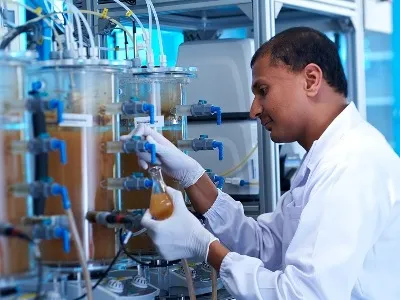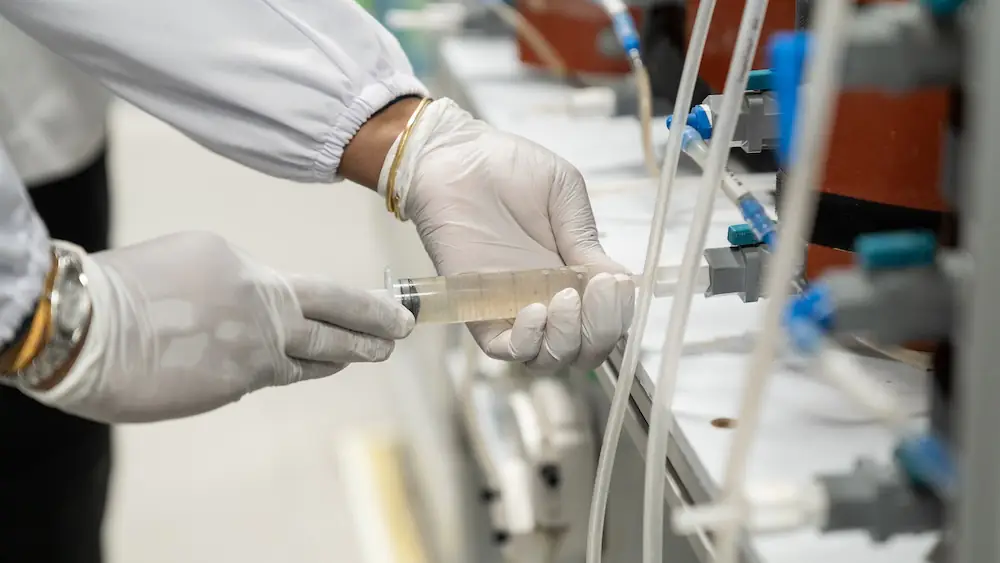Environmental Engineering
Research in the Environmental Engineering cluster focuses on the role of microbiomes at the water-food-environment nexus. Topics cover a range of bioprocesses in engineered and natural systems, including the degradation of pollutants, removal of nutrients from wastewater by biofilm processes, and transformation of wastewater nutrients into microbial community-based single cell protein. Novel approaches and methodologies have led to fundamental insights in wastewater treatment and resource recovery systems that are of practical relevance for a circular (bio)economy. Our research highlights sustainable waste management as a key factor in improving bioprocesses for resource recovery.
Specialising In
- Pollutant degradation
- Wastewater treatment and surveillance
- Circular economy
- Resource recovery and sustainable waste management
The Project
The Environmental Engineering cluster at SCELSE leverages cutting-edge scientific methods to study and manipulate microbial biofilms and microbiomes in natural and engineered settings. Utilising state-of-the-art genomic, molecular, and analytical tools, alongside high-resolution imaging and computational biology, this cluster advances our understanding of microbial communities and their use in sustainable solutions to contemporary challenges and opportunities. Facilities include advanced laboratories equipped with next-generation sequencing technologies, high-throughput liquid handling robotics, and bioinformatics resources. These tools are essential for developing sustainable waste management and environmental solutions through in-depth microbial analysis and innovative microbiome-based approaches.


The Goal
The Environmental Engineering cluster aims to develop sustainable wastewater treatment technologies, improve water quality, mitigate climate change impacts, and enhance public health by controlling pathogens through advanced microbial biofilm and microbiome research.
-
Develop sustainable waste management and wastewater treatment technologies
Enhance microbial processes to convert wastewater into valuable resources, promoting cost-effective and sustainable waste management solutions.
-
Improve water quality and management
Utilise biofilm and microbiome research to develop advanced bioremediation techniques for treating urban and industrial wastewater, ensuring safe and sustainable water cycles.
-
Mitigate climate change impacts
Harness microbial capabilities for carbon capture and bioremediation to reduce greenhouse gas emissions and improve ecosystem resilience against climate change.
-
Enhance public health through pathogen control
Study and control pathogenic biofilms in urban environments to mitigate the spread of infectious diseases and improve overall public health and safety.
-
Microbial biofilm-based solutions for resilient agriculture
Discovery and development of next generation nature-based solutions in agriculture, harnessing discovery of plant volatile signal that extends rhizosphere microbiome, promotes plant growth and resilience.
Core research themes Meta-‘omics & Microbiome cluster researchers participate in:
- Environmental Genomics & Surveillance
- Host Microbiome (Holobiont) Interactions
- Biofilm Biology, Mechanisms & Ecology
- Urban Water Cycle
- Microbiomes In Food Production
- Biofilm Detection & Control
- Marine Biofilms & Microbiomes
- Bioprocessing & Circular Economy
Publications

Enquire now!